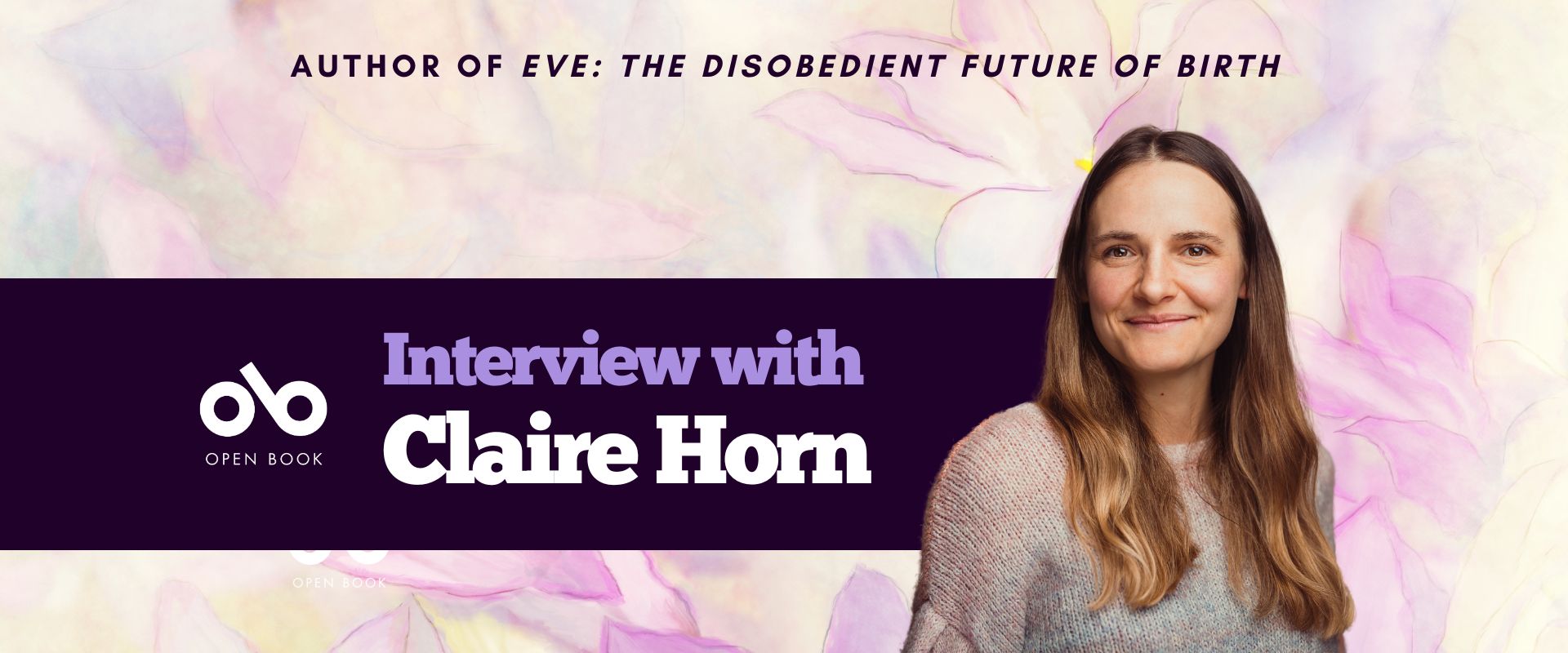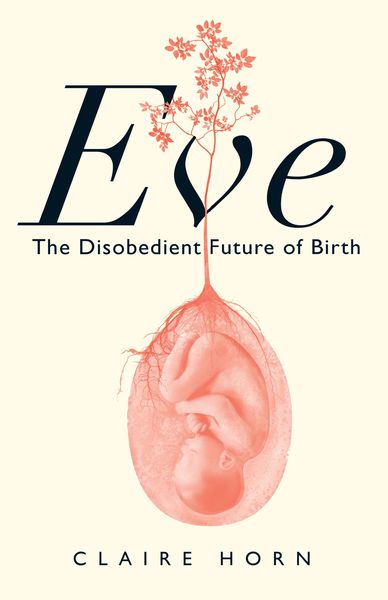Claire Horn on How She Wrote Her Groundbreaking Book on Revolutionary Artificial Womb Technology
So far, every single person who has ever lived had at least one thing in common: we were born from a person, in some manner.
But that fact may potentially change, thanks to a technological advancement called Ex-vivo Uterine Environment Therapy, aka EVE, an innovation that could change the medical, social, financial, legal, and psychological landscape of birth.
It's a radical technology – arguably one of the biggest technological changes in human history. For some, it's a welcome democratization of birth, allowing people struggling with infertility and families without a uterus to have a biological child. It could be a move towards equality, allowing families to allocate caregiver and childrearing household labour without the automatic assignments involved in one person carrying and birthing a child.
It is easy, however, to envision a darker future for EVE, in a world where many governments and people attempt to control the rights of pregnant people. Unequal access issues, eugenist ideologies, gender and identity discrimination, and other unintended negative consequences lurk at the margins of any technology related to birth, and the stakes may have never been higher than with EVE.
It's into this mixture of hope and murkiness that Claire Horn strides in Eve: The Disobedient Future of Birth (House of Anansi Press). Charting birth technology evolutions from the early, at that point unheard of, incubators of the 19th century to cutting-edge contemporary scientific breakthroughs, she reflects on the good, bad, and sometimes bizarre. Examining her own pregnancy experience through this lens, Horn crafts a fascinating read that is personal, political, and urgently timely.
We're speaking with Claire, a Killam postdoctoral research fellow at Dalhousie University’s Health Law Institute, today about Eve, and she tells us how predictions of artificial wombs first began over 100 years ago, how she deals with tough points in her writing process, and what she's working on next.
Open Book:
What was your research process like for this book? Did you encounter anything unexpected while you were researching?
Claire Horn:
The research process for Eve: The Disobedient Future of Birth predates the book proposal and even the idea for the book itself in that I started researching the social and legal implications of artificial womb technology back in 2016 when I began my PhD in law. Since the book deals with scientific progress as well as the changing landscape of law and policy, it was a process of both historical research and keeping up with a constantly developing field.
One of the unexpected things I encountered and found really fascinating was in reading about the early history of incubator technology. In the late 1800s, when the first attempts at creating something resembling our modern incubators were made, there were already some physicians effectively implying that they were on the cusp of making a kind of artificial womb. That was interesting to me because we think of artificial wombs as futuristic, but this is something that has really been both imagined and predicted for hundreds of years.
Your CanLit News
Subscribe to Open Book’s newsletter to get local book events, literary content, writing tips, and more in your inbox
OB:
What do you love about writing nonfiction? What are some of the strengths of the genre, in your opinion?
CH:
I love being able to bring together rigorous research and narrative in a way that prompts people to think about topics they may not have considered before, or consider familiar subjects in a new light. I think a major strength of the genre is just how many possibilities it contains, how many stories there are to tell and unique ways of telling them.
OB:
What do you need in order to write – in terms of space, food, rituals, writing instruments?
CH:
It depends on the phase I’m in with the writing process! Early on when I’m drafting and brainstorming, I like background noise and company so I’m inclined to be at a café or with other writers. When I’m revising, I need silence and my own space, and a solid chunk of time to really focus. And then snacks are essential throughout.
OB:
What do you do if you're feeling discouraged during the writing process? Do you have a method of coping with the difficult points in your projects?
CH:
Often if I’m feeling this way, I need two things. First, to do something that feels like the opposite of writing: go for a run, walk the dog, hang out with my kid, cook. It’s a reminder that my life exists outside of the project. Second, I talk it through with trusted collaborators, like the amazing editor of Eve: The Disobedient Future of Birth, Ellen Johl. After that, I can come back to it with renewed energy and shift my approach to think of whatever the difficult thing is as an interesting challenge.
OB:
Did you write this book in the order it appears for readers? If not, how did it come together during the writing process?
CH:
I mostly wrote it in the order it appears, but I did jump around a little in the first draft. I let myself go first to the chapters that I felt the most ready to write, and then rewrote to allow it all to flow together. I did write the conclusion last, after I’d reworked everything a few times.
OB:
What are you working on now?
CH:
I’m working on a number of academic projects, and I also just finished a proposal for my next nonfiction book!
_______________________________________________________
Claire Horn is a Killam postdoctoral research fellow at Dalhousie University’s Health Law Institute. Her work over the last six years has focused on law and policy governing sexual and reproductive health, rights, and technologies. She has written for a variety of academic and nonfiction publications, including the Journal of Medical Ethics, the Medical Law Review, Feminist Legal Studies, Catalyst, Aeon, and Lady Science.






